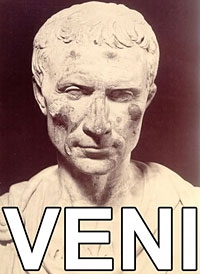Veni grants for 6 young researchers of Humanities
During the next three years, 6 promising researchers from the Faculty of Humanities who have just been awarded their PhDs will be able to further develop their research ideas funded by a Veni grant from the NWO. A total of 147 Veni grants were awarded of which 14 went to researchers at Leiden University.
The research projects

What makes language complicated?
Dr Jenny Audring, Linguistics
Languages are constantly changing. Sometimes this causes them to develop qualities which are difficult to learn for the next generation of children. Drawing on a number of languages, this project focuses on what makes grammar easy or difficult and where the boundaries of our ability to learn languages lie.
A commercial revolution in ancient Rome
Dr Miko Flohr, Ancient History
An important development in Roman times was the increasing popularity of shops. Before this, everyday products were largely sold at markets. Ancient Rome even boasted the world’s first shopping centres. This research project examines how this development radically changed Roman cities.
The poet as a popstar
Dr Rick Honings, Dutch Language and Culture
Modern pop stars cultivate their image. The invention of the current cult of celebrity, however, has its origins in the nineteenth century. This project is about Literary celebrity and the question of how Dutch poets manifested themselves as public figures between 1780 and 1900.
How do Creole languages originate?
Dr Bart Jacobs, Leiden University Centre for Linguistics
Using two never before studied archaic variations on Haitian Creole, which is spoken in Cuba and Samaná, Jacobs wants to unravel the controversial history of the origins of these and other comparable Creole languages.
Expressive structures in sign languages
Dr Victoria Nyst, Leiden University Centre for Linguistics
Deaf people all over the world use languages composed of signs. ‘Expressive’ structures occur frequently in these languages. In West Africa many sign languages are used by deaf people as well as by people who can hear. This project researches the influence of people who can hear on the development of expressive structures used in three West African sign languages.
Digital Nationalism in China
Dr Florian Schneider, Leiden Institute for Area Studies
China has more internet users than there are people living in the European Union. This means a lively online community, but also a lot of nationalist feelings. With Sino-Japanese history in mind Schneider analyses how nationalism works within the digital networks of a developing world power.
